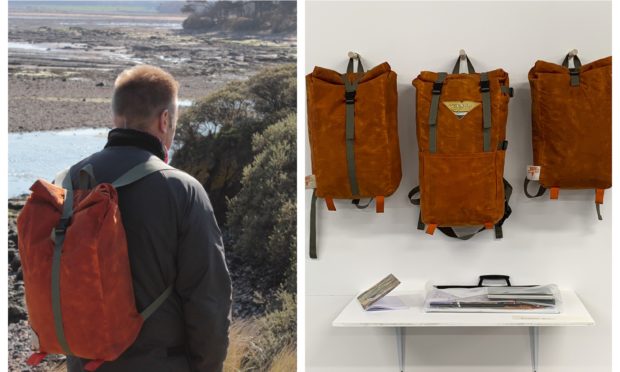Tents binned or burned at the end of festivals might be a thing of the past thanks to a concept designed by a recent Dundee graduate.
Appalled by the sight of tents abandoned at festivals such as Glastonbury, Fraser Watt has devised a novel way to give old shelters new life by fashioning them into sustainable and durable rucksacks.
Inspired by his own experiences as a Scout, Fraser began hand-stitching tents that would normally be thrown out after use.
The 22 year-old, who hails from East Lothian, believes he has found a method of recycling that will satisfy festival-goers, munro-baggers and environmentalists alike.
“We live in a society of waste,” said Fraser.
“The impact of which is very visible, whether in the Highlands or after festivals, as people leave their rubbish including tents scattered about.
“I wanted to introduce sustainable design to redundant gear and help prolong its lifespan by giving it a new purpose. In doing so, I hope to turn tattered tents into bags bursting with memories.”
Fraser believes his two-day process that transforms an unwanted tent into a unique rucksack, could also allow munro-baggers and alpinists, who have spent days or weeks in their tents, the opportunity to keep those memories alive.
His concept could also go some way to solve the recent tent-burning phenomenon at Reading Festival and Glastonbury.
He said: “The burning of festival tents is terrible for our environment and though many of those tents are made from materials that aren’t meant to last, my process could give festival-goers a reason to hang on to them.
“Many festival tents have tales to tell and by recycling them into bags they can continue to remind their owners of good times.”
Fraser developed his novel approach to abandoned tents during his final-year at Duncan of Jordanstone College of Art & Design. He graduated from Dundee University this month with a degree in Product Design.





